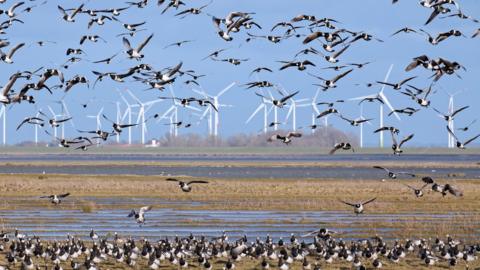The 136-page action plan, to be released on Friday, will also include other measures to accelerate renewable energy.
This is expected to include prioritising projects to enable an early connection to the electricity grid, and incentivising private investment.
The government wants to move away from a "first-come first-served" approval process for the grid, and prioritise those likely to be most useful.
There are currently thousands of projects waiting in a queue to be approved to be connected to the UK grid. If all the projects were given the go-ahead, 739GW of energy would be added to the system, 14 times the amount of renewable energy the country currently has.
Labour projects these reforms could attract £40bn a year from mainly private investment in "homegrown clean power projects".
The industry has been calling for many of these measures for years and broadly welcomed the plans.
Lucy Yu, CEO for think tank Centre for Net Zero, said: "The Clean Power Action Plan shows that the government isn't afraid to be bold, illustrated by the breadth and nature of proposed changes."
Yu, who is also a government adviser, warned ministers not to "forget the central role of consumers and communities in the energy transition".
"The British public's support will be key, and the government must ensure clean power delivery has their interests at heart."

